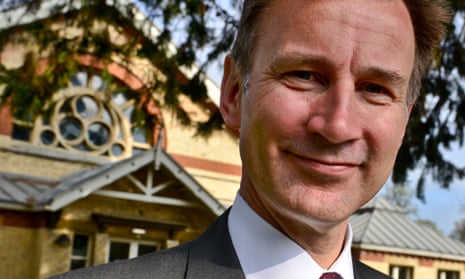Profit-driven firms have been winning far more NHS contracts than ministers admit and privatisation has increased significantly under the coalition government, the latest evidence shows.
Two new sets of figures, detailing who is being awarded contracts to provide NHS clinical services, both challenge the government’s claim that only 6% of the service’s budget goes to private firms.
Contracts monitored by the NHS Support Federation campaign group show that private firms won £3.54bn of £9.628bn worth of deals awarded in England last year – a win rate of 36.8%.
And responses from GP-led clinical commissioning groups (CCGs) to a Labour freedom of information request reveal that private firms have been winning 40% of contracts CCGs have put out to tender, worth a total of £2.3bn, only slightly fewer than the 41% awarded to NHS bodies.
Labour also claim that NHS patients have had to endure longer waits for treatment as NHS hospitals have increasingly maximised their income from private patients, the number of which has gone up by as much as 58% since 2010. The NHS will end up as “a two-tier service”, with those paying privately being prioritised over other patients, unless action is taken to reverse the trend, the party claims.
Andy Burnham, the shadow health secretary, said the figures it had collated “demolish [David] Cameron’s claim that there’s only been a modest increase in privatisation on his watch. The truth is there has been a sharp increase and the public has never been asked whether they want the NHS to go in this direction.”
Labour will on Saturday try to again use health to its advantage in the election campaign by pledging to reinstate the 2% limit of total income that NHS hospitals can earn by treating patients privately.
Ministers claim that the proportion of the NHS’s £100bn-plus budget going to private firms has risen from 4% under the previous Labour government to 6% during the coalition’s time in office.
This month, the health secretary, Jeremy Hunt, accused Labour of trying to “scare people about privatisation that isn’t happening”.
But Labour’s research found that of 5,071 contracts awarded by CCGs 2,098 (41%) went to NHS bodies and 2,024 (40%) went to private healthcare firms, such as Care UK. The GP-led groups took control of £69.2bn of NHS funding in 2013.
“David Cameron and Jeremy Hunt have not been honest with working people about the scale and pace of privatisation on their watch. They’ve tried to play it down but these figures show they simply cannot be trusted with the NHS,” said Burnham. “It is shocking to see private companies winning just as many contracts as the NHS, and some with links to the Tory Party too.”
In 2009-10, Labour’s last year in power, 129 NHS foundation trust hospitals earned £224m in total from private patient income (PPI). By 2013-14 that had grown to 142 trusts sharing £389m between them.
The coalition lifted the cap on how much trusts could earn from PPI from 2% to 49% as part of its unpopular shakeup of the English NHS under the Health and Social Care Act 2012.
The £3.5bn worth of contracts won by private firms is five times the £681m the NHS Support Federation identified the year before. It also represents a huge increase on the £205m of contracts awarded in 2010-11, the coalition’s first year.
Of 13 contracts awarded last year that were worth at least £100m, six went to private firms, another five to private consortiums and just two to NHS providers bidding on their own. For example, Virgin Care got a £280m deal to coordinate care for long-term illness and care of elderly people in East Staffordshire.
“The public need clear sight of what’s happening to the NHS ahead of 7 May. The government cannot go on denying NHS privatisation. If we stay on the same path the NHS will become dominated by big business and there is a real danger that it will not survive,” said Paul Evans, director of the NHS Support Federation, which is funded by individuals, charities and unions.
“This is proof positive of a steep escalation in the private sector’s hold over the NHS. The mammoth NHS reforms opened up the NHS to the market and business. There is no current limit on how far their involvement can go,” he added.
The Tories rejected Labour’s claims about growing privatisation and dismissed returning the private patient cap to 2%.
A spokesman said: “This is a gimmick from Labour. Official figures show that outsourcing accounts for just 6p in each NHS pound, and private patient income is actually falling as a proportion of hospital budgets.
“By fixating on privatisation that independent experts and [NHS England boss] Simon Stevens say is a myth, Labour betray patients because the real debate should be good care against poor and on their watch, terrible events at Mid Staffs went ignored for four years.”

Comments (…)
Sign in or create your Guardian account to join the discussion